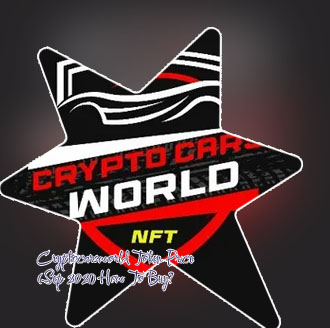
Crypto cars
As the world of cryptocurrencies continues to evolve, innovative applications are being developed in various industries. One such emerging trend is the concept of "Crypto cars," where blockchain technology is being integrated into the automotive sector. Below are three articles that explore how cryptocurrencies are revolutionizing the way we think about cars and transportation.
Revolutionizing the Automotive Industry: How Crypto Cars are Changing the Game

The automotive industry is on the brink of a major transformation as crypto cars are revolutionizing the game. With the rise of blockchain technology, car manufacturers are exploring new ways to enhance security, transparency, and efficiency in the production and operation of vehicles.
One of the key aspects of crypto cars is the use of blockchain to create digital identities for each vehicle. This allows for secure and tamper-proof records of a car's history, including maintenance records, ownership changes, and even driving habits. By leveraging blockchain technology, car owners can have full control over their vehicle's data, ensuring privacy and security.
Moreover, crypto cars are also changing the way we think about ownership and usage of vehicles. Through smart contracts and tokenization, car sharing and rental services can be automated and decentralized, reducing costs and increasing accessibility for consumers. This opens up new possibilities for mobility services and peer-to-peer transactions within the automotive industry.
The emergence of crypto cars is not just a trend, but a significant shift in how we interact with vehicles. As blockchain technology continues to evolve, we can expect to see even more innovations in the automotive industry that will shape the future of transportation. This article sheds light on the importance of embracing these changes and staying ahead of the curve in the world of crypto cars.
The Future of Transportation: How Blockchain is Powering Crypto Cars
Today we have the pleasure of discussing the exciting topic of blockchain technology in the transportation industry. Blockchain, a decentralized digital ledger, is revolutionizing the way we think about transportation, particularly with the emergence of crypto cars.
Crypto cars are vehicles that utilize blockchain technology to store and secure data related to ownership, maintenance, and even autonomous driving capabilities. By leveraging blockchain, these cars can provide a transparent and immutable record of their history, making it easier for buyers to verify the authenticity of the vehicle and ensuring that maintenance records are accurate and up to date.
One of the key benefits of blockchain in the transportation industry is increased trust and security. With blockchain, data is encrypted and stored across a network of computers, making it virtually impossible for hackers to tamper with or alter information. This level of security is crucial in an industry where safety and reliability are paramount.
Furthermore, blockchain technology can also streamline processes such as car rentals, ride-sharing, and even traffic management. By creating a decentralized network of connected vehicles, blockchain can facilitate peer-to-peer transactions and enable vehicles to communicate with each other in real-time, leading to more efficient and sustainable transportation systems.
In conclusion, blockchain technology is set to revolutionize the transportation industry by powering crypto cars and transforming the way we think about mobility. By leveraging
From Cash to Crypto: How Car Dealerships are Embracing Digital Currency
In today's ever-evolving digital landscape, the automotive industry is no stranger to embracing new technologies. One such innovation that has been making waves in the industry is the adoption of digital currency by car dealerships around the world.
Digital currency, often referred to as cryptocurrency, has been gaining popularity as a form of payment for various goods and services. Car dealerships are now beginning to see the benefits of accepting digital currency as a way to attract tech-savvy customers who prefer the convenience and security it offers.
By accepting digital currency, car dealerships are able to streamline the payment process, reduce transaction fees, and reach a wider customer base. Additionally, digital currency transactions are secure and offer a level of anonymity that traditional payment methods may not provide.
Overall, the shift from cash to crypto in the automotive industry is a clear indication of the growing acceptance and integration of digital currency in mainstream businesses. As more car dealerships embrace this trend, it is likely that we will see a continued rise in the use of digital currency in the purchasing of big-ticket items.
This article is important for the topic of digital currency integration in traditional industries, showcasing how car dealerships are adapting to the changing payment landscape.